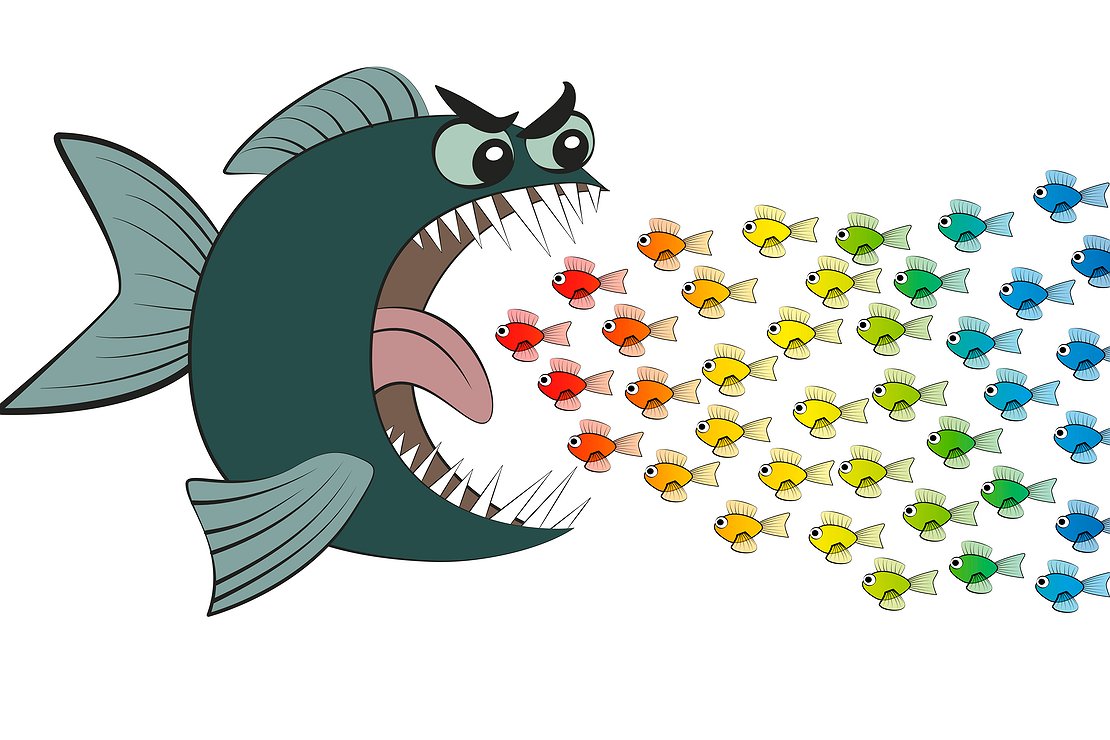
The German Right:Under Permanent Stress
Mariana Harder-Kühnel, the AfD candidate for the office of Vice-President, or deputy speaker, of the Bundestag did not obtain the required majority in the first vote (which took place on November 29 this year). She received only 223 of the 654 votes cast. The third strongest party in parliament continues to be denied what the fourth, fifth and sixth strongest parties – the FDP, the Left and the Greens – take for granted.
Looking at the situation from their point of view, the two-thirds blocking majority only acts with consistency and in accordance with their political logic. Because a place in the Bundestag presidency would increase the AfD’s prestige and the attention it receives, and thus also give its topics even more political legitimacy and relevance. It would bring the party another step closer to the much-quoted ‘level playing field’.
AfD parliamentary group leader thrown out of a restaurant
This is precisely what the established functional elites want to prevent at all costs. They cannot argue against fundamental criticism on central issues such as mass immigration, internal security, the EU debt union, etcetera, so they try to assert themselves as appointed guardians of sacred democratic and humanistic ‘values’ – of goodness itself.
Within this self-perception, political opponents are conceivable only as supplementary figures, as incarnations of a metaphysical evil, which must be stigmatized and held down with all one’s strength. Granting them a place on an equal footing would mean contradicting one's own pattern of action. So informal rules, customs and even laws are ignored.
In this instance, Ms Harder-Kühnel is experiencing discrimination as a politician in the political arena, i.e. in a comparatively mild form. Katrin Ebner-Steiner, head of the AfD parliamentary group in the Bavarian state parliament, was hit harder when she was ‘ushered’ out of a restaurant in Munich's ‘Haus der Kunst’ museum that she had visited with a friend. The landlady subsequently justified the expulsion with reference to the multicultural artists, exhibitions and employees in the museum.
A commentary in the Sunday edition of the (allegedly conservative) Frankfurter Allgemeine Zeitung celebrated with enthusiasm this attack on the politician’s social and private world. In both legal and moral terms, the landlady had the right “to throw a customer out, who supports a policy that directly impacts the staff she wanted to be served by in a negative way. The expulsion is a reality check, the message is that when you broadcast, you also have to listen. And that you cannot make use of the amenities of post-migratory society and at the same time continuously undermine its foundation with your political messages.” Ebner-Steiner, the commentary continues, is one of those people “whose main occupation is to question the right of migrants to exist, and there are other people who stand up and protect these people.”
Politically motivated house bans are legally covered
That the AfD-woman denies other people’s “right to exist,” and does this as her “main occupation,” should be difficult for the FAZ author to prove. His argumentation is so weak that it can be easily reversed. After all, even the opponents and critics of the “post-migratory society” have to bear its costs and inconveniences. They can expect some compensation, can't they? The writer affirms the attempt to strangle a political debate by demoralizing the representatives of the opposing opinion camp through social isolation, public stigmatization and, finally, by silencing them altogether.
It is true, however, that politically such house bans are entirely legal. The General Equal Treatment Act (Anti-Discrimination Act) only addresses discrimination on the grounds of “racial or ethnic origin, sex, religion or belief, disability, age or sexual orientation”.
In the opinion of the Supreme Court, a belief or worldview is “the certainty associated with a person's position in the world and certain statements about the world as a whole”. “A political attitude is merely one's own sympathy with a particular political current. This is not necessarily the same as a complete worldview”.
True, but what are the consequences? Anyone who, from their religiously colored worldview, describes the unbelieving Germans as a “mongrel race”, may refer to the Anti-Discrimination Law. If a German bids the offender good riddance, he or she expresses a hostile-negative, political attitude, which justifies house bans, losing his or her job, even observation by the ‘Verfassungsschutz’ (Federal Office for the Protection of the Constitution).
Moral degradation as a subtle form of dehumanization
It doesn’t stop with selective local bans. Uwe Junge, chairman of the AfD in the state of Rhineland-Palatinate, was attacked by four thugs in 2016, suffered facial injuries and had to undergo surgery. The organizer of the ‘Merkel must go’ rallies, Uta Ogilvie, gave up unnerved after her house was smeared with slogans at night and stones flew through the window into the room where her children were sleeping.
Let’s cite representatively the authors of the book ‘Mit Rechten reden’ (‘Talking to the Right’), who claim that the “Right” are “begging for the role of victim;” they “spit and hiss from their self-chosen cross;” they are “aggressive whiners” who deliberately created “compassion” to mobilize “their followers”. This is a cynical and perverse interpretation.
The opponent is knocked over by a kick in the back of the knee and then punched in the face, is asked to confess that the incessant social and psychological stress, the destruction of private property and areas of relaxation, putting his children at risk, and even bodily harm do, in truth, excite him in a positive way. He is presented as a preposterous, disreputable person, who is not really of sound mind; material exclusion and situational humiliation is complemented by moral degradation as a subtle form of dehumanization.
“Civil courage” reduced to tagging along
This is as opportunistic as it is intellectually cowardly, because it ignores the simple fact that activism on the ‘right’ is always risky, while participation in the ‘fight against right’ brings benefits of various kinds. What today is called “Haltung” (having the politically correct “attitude”) or “civil courage” is in practice mainly limited to the hangers-on and pharisees. Even the Munich landlady, who showed the AfD woman the door, knew very well that she would not be exposed to incalculable risk or public criticism. On the contrary, she could feel herself to be the executor of the state ideology and propaganda.
The ‘fight against the right’ is not spontaneous. It is induced by incessant propagandistic irrigation and indoctrination, and institutionalized by state and even more semi-public bodies. The media are among them; artists and cultural institutions have joined the united front with the “Declaration of the Many,” as has the historians' association with its barely covert address of devotion to the Chancellor. There are initiatives, action groups, and Internet platforms throughout the country who, with the help of public funding, are dedicated to monitoring, controlling, denouncing, and actively combating legal irregularities, and who act as front soldiers in a molecular civil war.
However, where inferior qualities are elevated to civic virtues, mentally and morally precarious characters appear on the scene. In them, the Olympic feeling of fighting the bodily representatives of a metaphysical (Nazi) evil is fused with “historical dementia” (Nicolaus Fest). This combination creates the danger of absolute self-empowerment and mimetic adaptation to a past, on which they are as wrongly as they are compulsively fixated.
Dangerous momentum
With the slogan “No Kölsch beer for Nazis,” around 150 restaurateurs reacted to the AfD party conference in Cologne in spring 2017. It was said that the clubs and pubs involved in the campaign wanted to take a stand against racism and against the AfD. That happened with the full assent of the entire civil society. However, restaurants or hotels have actually no reason to exclude a sound, paying clientele. Unless it has been made clear to them that a boycott of the boycott would entail painful punitive measures.
What is potentially possible in a society conditioned and structured in such a way, and what measures are in store for the delinquents once they have been banished from the public and semi-public spheres, are unanswered questions. Such developments have their own dynamics, as history shows. And from whence should a society of hangers-on possibly draw the strength to resist? Will killing under all circumstances still be prohibited in the future? One cannot be certain.
Originally written for 'Junge Freiheit', where the article appeared under the title 'Im Dauerstreß', on December 9th 2018.




